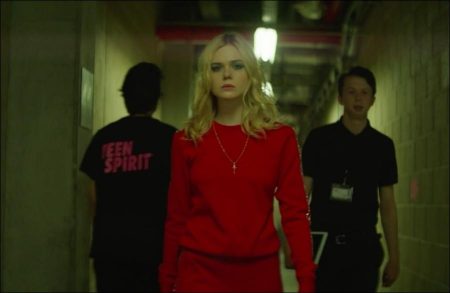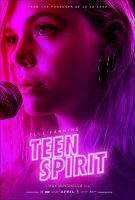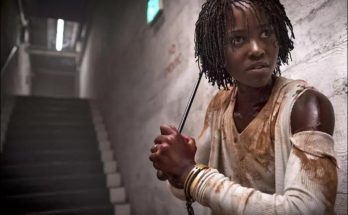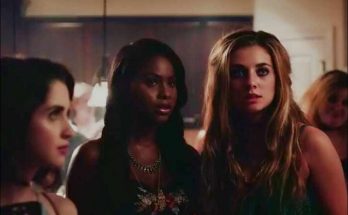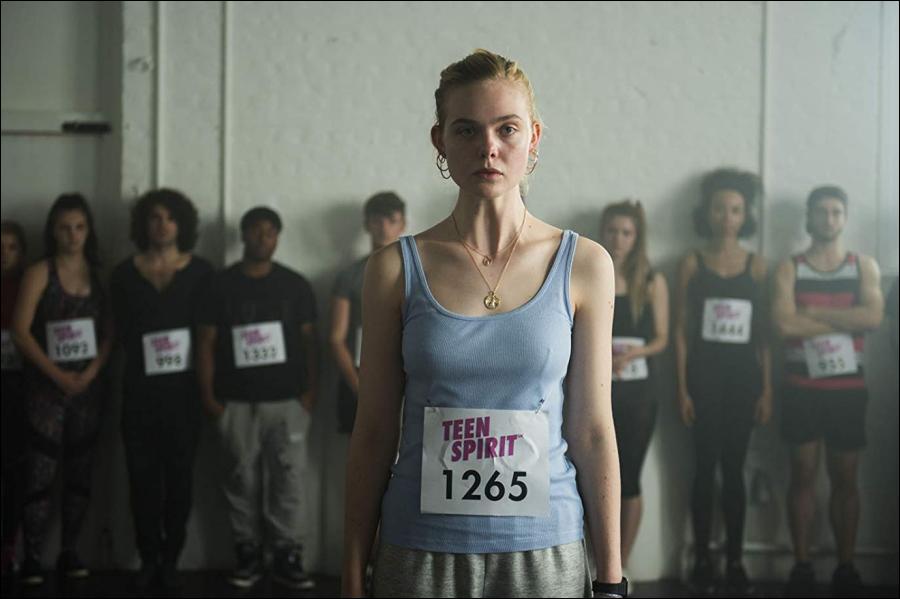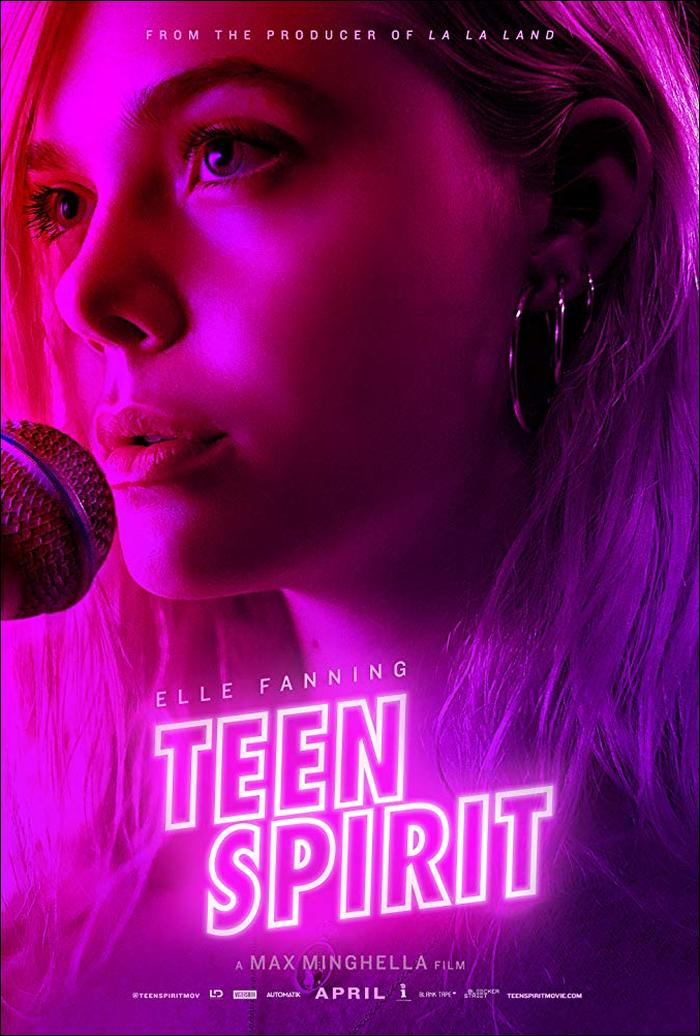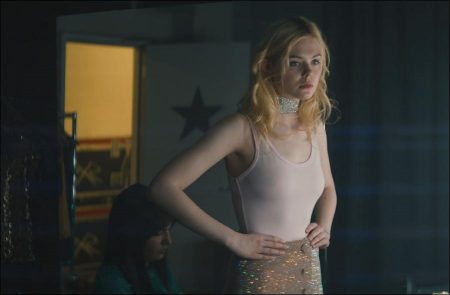
Teen Spirit Movie Storyline. Violet (Elle Fanning), a Polish teenager living on the Isle of Wight with her single mother. She works a job she hates, sulks through school, and generally seems to detest her life. But she sings at an open mic occasionally, and she has a beautiful voice—Fanning did all of her own singing and she does a phenomenal job with the music, further proving she can do pretty much anything. It’s one of those dingy bars in which the person on stage is lucky if even one of the audience members claps. This is not Ally at the club meeting Jackson Maine like in “A Star is Born.” This is a young lady expressing herself to an audience that barely cares. Except there is one person that claps.
That person is a retired opera singer named Vlad (Zlatko Buric), who recognizes Violet’s talent. When a singing competition show a la “American Idol” comes to town, Violet asks Vlad to be her manager/guardian, scared to ask her mom to help. She tries out for the show, and makes it through the first few rounds, which means she’s headed to London for the live TV broadcast, at which point the country will decide her fate. Violet is clearly remarkably talented, and she’s quickly forced to navigate the tricky waters of impending fame to make sure her career doesn’t end before it begins.
Teen Spirit is a 2018 musical drama film directed by Max Minghella (in his directorial debut). The film stars Elle Fanning, Rebecca Hall, and Zlatko Burić. The film had its world premiere at the Toronto International Film Festival on September 7, 2018. It was released in the United States on April 12, 2019, by LD Entertainment and Bleecker Street, and in the United Kingdom on July 26, 2019, by Lionsgate Films.
Film Review for Teen Spirit
Elle Fanning stars as a quiet girl from the sticks who wants to win a British TV talent show in this writing-directing debut for Max Minghella. Although British-made Teen Spirit features lashings of EDM-influenced, heavily produced pop music, the kind that sells downloads by the zillion on digital retail platforms, this making-of-a-star drama is old-fashioned and corny, and not in a good way. A writing-directing debut for actor Max Minghella (The Handmaid’s Tale), Spirit is supposedly set partly on Minghella’s home turf, the Isle of Wight (the south coast English island where Minghella’s father, the late director Anthony Minghella, also grew up). And yet the film is curiously lacking in a strong sense of place.
That’s of a piece with the occluded personality of the protagonist, played by industrious but frequently recessive Elle Fanning. She speaks several lines in Polish here (reasonably convincingly) and shows off a good singing voice while playing a shy country girl who auditions for a nationwide, X Factor-type TV talent show. The actress, who is reported to have done all her own singing live and not had it Auto-Tuned in post, has a good set of pipes, but it’s hard to see her competent but derivative musical stylings breaking out in a crowded marketplace.
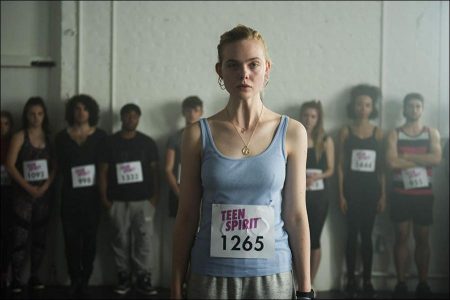
Indeed, too much here fails to convince, from many nagging little details in Minghella’s self-penned script to more technical aspects of the production. Fanning’s character, Violet, is supposed to be a 17-year-old high school student who also works in a pub part-time to help her struggling single mother (Agnieszka Grochowska) out with the household expenses, Violet’s father having disappeared years ago. When she can, Violet sings both in the church choir and on stage at a seedy club with a live accompanist to an audience of indifferent drunks, the sort of setup that hasn’t been seen in a British venue since the invention of the karaoke machine.
One night, Violet’s performance wins praise from Vlad (Croatian actor Zlatko Buric, best known for playing Milo in Nicolas Winding Refn’s Pusher films), a washed up, booze-soaked man of undefined Eastern European origin who just so happened to have been a great opera singer back in the day.
Violet wants to audition for Teen Spirit, a musical talent show, but knowing her mother wouldn’t like it, she ropes in Vlad to pretend to be her guardian and sign the permission form. He ends up becoming her “manager,” and coaches her on technique.
Montage after montage soon ensues as Violet climbs up the rankings and makes it to the final. Along the way, she picks up a backing band of other teens from the island, a racially mixed crew that establishes her street cred but seems demographically unlikely to anyone who has ever spent much time on the Isle of Wight.
There are just too many plausibility holes like that and sloppy fudges along the way. For instance, Buric has a deep, from-the-caverns-of-hell sort of speaking voice, and yet when we get to hear an LP of what’s supposedly him singing an aria from Madama Butterfly, it’s actually tenor Ashley Faatoalia, whose voice is way, way higher. A gap that big between speaking and singing voice isn’t impossible, but it would be an outlier.
And then there’s problems like the bizarre lighting choices DP Autumn Durald Arkapaw makes when showing the performances for Teen Spirit. It may match the hazy, pop-video vibe of the earlier part of the film, but there’s no way a show like this would have everyone’s faces in shadow that often, backlit to create pretty hair halos but making their features almost completely unidentifiable. Perhaps it’s all part of a strategy to disguise the lack of budget for background players.
There are a few redeeming features, nevertheless. Rebecca Hall, always a treat, is a gas as an evil female version of Simon Cowell, with sinisterly coiffed hair and a Mephistophelian glint in her eye. And the music, as a standalone soundtrack, is well composed and curated by Marius de Vries and music supervisor Steven Gizicki, comprised of exactly the sort of glassy power pop you would expect from a show like this.
Teen Spirit (2019)
Directed by: Max Minghella
Starring: Elle Fanning, Rebecca Hall, Millie Brady, Elizabeth Berrington, Olive Gray, Zlatko Buric, Ruairi O’Connor, Clara Rugaard, Viktorija Faith, Antonia Clarke, Laura Vivio
Screenplay by: Max Minghella
Production Design by: Kave Quinn
Cinematography by: Autumn Durald
Film Editing by: Cam McLauchlin
Costume Design by: Mirren Gordon-Crozier
Set Decoration by: Kate Guyan
Art Direction by: Tom Coates, Tilly Scandrett
Music by: Marius De Vries
MPAA Rating: PG-13 for some suggestive content, and for teen drinking and smoking.
Distributed by: Bleecker Street, Lionsgate Films
Release Date: April 5, 2019
Views: 127
